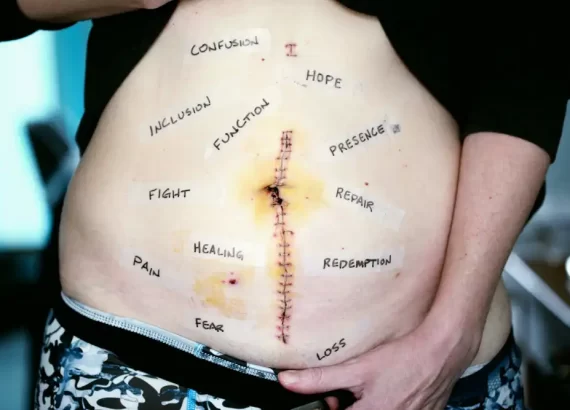What is Mindfulness

When I learned about the word “mindfulness” and what it is, I realized I started using mindfulness skills a long time ago without knowing what they were.
I have two personal stories to share with you. The first one:
When I was in middle school, I had to climb up to the fifth floor to get to my home. It was at the end of the day and I was tired. Needless to say, it was not very fun to climb up 5 stories with a heavy backpack. So at certain moments, I would purposefully notice how my feet felt against the concrete stairs, notice my surroundings and thoughts, thinking about how I would recall this moment years later (Yes. I’m weird sometimes.) Somehow, it helped me get through the process quicker and with less negativity.
The second story:
Many years ago, I was in Vietnam on a business trip. I had to be outside in the hot and humid weather for a whole day. After a while, I started to get irritable, “It is too hot. I can’t stand it. I wish I could go inside.” Of course, all these thoughts made it worse because I couldn’t go inside or change the weather. I couldn’t change the situation at the moment. I was stuck in the suffering.
Then somehow I started to focus on how the heat felt against my skin. I was observing my experience and the sensations. It created a little distance between me and the experience. I stopped trying to change something I couldn’t change. I simply became a curious observer. To my surprise, the irritability subsided. It was still hot but the suffering went away.
These are simple examples of what mindfulness is and how it can help us in daily living and recovery. It doesn’t require you to sit in a lotus position. You don’t have to set aside long periods of time to meditate. It can be infused into what you already do everyday. So there is no reason not to at least try.
The definition of mindfulness
Mindfulness is simply paying attention to the present moment without judgment, being aware of your thoughts, feelings, actions, or surroundings at the present moment.
So how can mindfulness help?
It redirects you away from the grips of the past and/or worries about the future so your mind can get a break, even if it is just for a few minutes, and you can live your life in the present moment where you can actually change and make a difference.
Sometimes you keep thinking about the past, going through the details of what happened, asking “why” questions like “why did he do that to me?” “Why did that happen to me?“, and ruminating about the “should’ve, could’ve, would’ve.”
Sometimes your mind lives in the future, worrying about what may or may not happen, imagining worst case scenarios, and planning endlessly for things that may never happen.
Those thoughts may circle in your mind without you wanting them to. You try to push them away, but you find the harder you try, the more they stick with you. They may even keep you up at night. It is exhausting and frustrating.
Your mind needs a break. Your body needs a break. Redirecting your attention away from those thoughts to focus on the present will give you that break, no matter how short it is, because the effect can be cumulative.
It creates some distance between you and your suffering so you can respond in a thoughtful way and without making the situation worse.
How many times have you allowed your emotions or immediate reactions to make important decisions for you which you regretted later on? When you are in a lot of pain, whether physical or emotional, it is more difficult to think rationally, and the natural reaction is to get out of it as soon as possible no matter what.
Pain is inevitable in life but suffering is not. Notice and observe the pain or negative thoughts or unwanted emotions. Become a curious observer and learner. It can make pain more tolerable and help you keep your thinking part of the brain engaged, so you are more likely to make better decisions.
It helps you to not be afraid of your emotions.
Sometimes people are afraid of feeling a certain way due to past experiences or because it doesn’t feel good, and then as soon as they feel it they go into a panic trying to get rid of that feeling, which usually doesn’t work and makes the situation worse. Have you ever worked yourself up?
By using mindfulness, you allow yourself to feel those emotions, You may find that you are not gonna die or the emotions are tolerable, and then those strong emotions will gradually lose their power over you.
It takes away the judgment we often place on our experiences and emotions so we don’t have to add more suffering to the pain we already feel.
“I should not be angry.” “I should always have loving feelings towards my kids.” “Why do I keep doing it?” “Here I go again.” “What’s wrong with me?” “Why can’t I just stop?” A lot of the women I have worked with are very compassionate and kind towards others but they can be really harsh on themselves, quick to place negative judgments.
You already feel bad about a situation or a struggle. You don’t need to add more to it. Remind yourself and state the fact: It is just a thought, It is just a feeling, I am having some difficulty with this, I made a mistake, etc.
It helps you enjoy the moment.
Sometimes my daughter would complain on Sunday: “I have to go to school tomorrow.” But you still have a whole day of free time, relaxation, and playing. Are you gonna trade the time of joy right now for worrying about tomorrow?
You may find yourself not being able to experience joy in the moment. Your happiness can be short-lived. Because you keep think “something bad is gonna happen sooner or later,” “the other shoe is gonna drop,” “I don’t deserve to be happy,” …Again you feel the pull from the past or the future. Try to stay mindful of the present joy or any positive experience in the moment.
It trains your mind/brain to pay attention to what you want it to pay attention to so you feel more in control of yourself and able to better utilize your power within.
Mindfulness is exercise for your brain and mind. It is totally normal and expected to get distracted. Different things may affect your attention span but nobody can sustain attention on one thing for too long.
Practice makes perfect. Start with short simple mindfulness exercises. If your mind wanders, notice it and gently redirect your attention back to where you were. Sometimes you may have to do it multiple times in a minute, which is okay.
Now try this simple mindfulness activity: gently rub your upper lip and then notice how long you feel the sensation.




